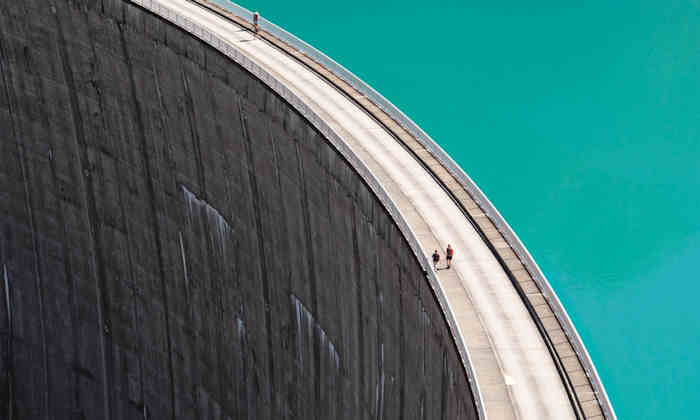How we’re helping create renewable energy from water
21 Apr 2021
University leads biggest ever research project on sustainable development of the world’s dams – bringing power safely and changing lives

Our University is leading the biggest ever project on the sustainable development of dams, helping to create renewable energy and power the development of countries in Africa and Asia.
More than 3,700 large dams are currently planned or under construction fuelled by a need to generate renewable energy and harness water for irrigation. The vast majority are located in the global south.
The FutureDAMS project – a partnership of 17 universities led by Manchester, which brings together engineers and social scientists from across Africa and Asia to develop innovative solutions – works to maximise the benefits that these dams bring, while minimising the negative social and environmental impacts.
Our research will help to improve the design, selection and operation of dams to support sustainable development and resilience in a warming world.
Dam building largely ground to a halt in the 1990s, plagued by concerns about displaced communities, environmental damage, corruption and underwhelming electricity production.
“Most media coverage says don’t build dams. But people need access to regular water supplies”, says Professor David Hulme from Manchester’s Global Development Institute. “Victorian dams around Manchester have ensured a decent standard of living for generations. People need access to regular electricity. You and I have it, so why shouldn’t all people across Africa and Asia?”
Professor Julien Harou, Chair in Water Engineering in the University’s Faculty of Science and Engineering, believes the project can make a potentially significant global contribution.
“Our aim is to move the industry away from reactive assessment of individual projects, towards a systems-scale, strategic approach”, he says.
As Jamie Skinner of partner organisation the International Institute of Environment and Development (IIED) points out: “With better, more effective and efficient, collaborative design and management processes, reservoirs can secure more benefits and create fewer problems.”
- Find out how we're confronting the challenges facing humanity and the natural world in our Sustainable Development Goals report.
And watch David Hulme explain more about FutureDAMS here:
